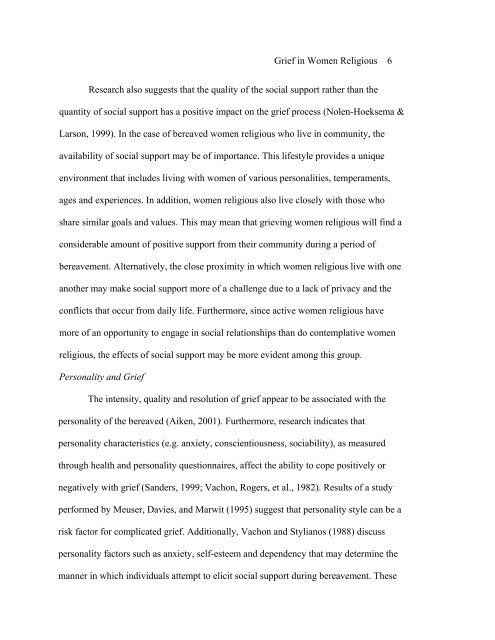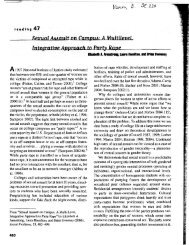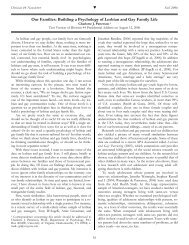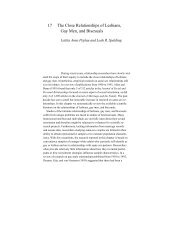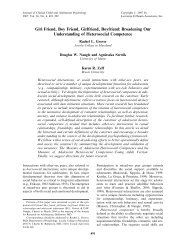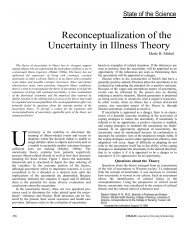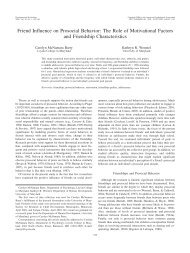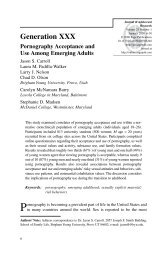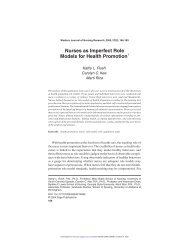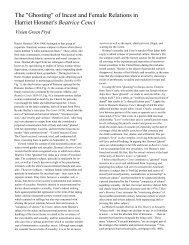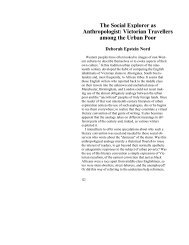The dissertation of Kelley, IHM, MS_________________ entitled ...
The dissertation of Kelley, IHM, MS_________________ entitled ...
The dissertation of Kelley, IHM, MS_________________ entitled ...
You also want an ePaper? Increase the reach of your titles
YUMPU automatically turns print PDFs into web optimized ePapers that Google loves.
Grief in Women Religious 6<br />
Research also suggests that the quality <strong>of</strong> the social support rather than the<br />
quantity <strong>of</strong> social support has a positive impact on the grief process (Nolen-Hoeksema &<br />
Larson, 1999). In the case <strong>of</strong> bereaved women religious who live in community, the<br />
availability <strong>of</strong> social support may be <strong>of</strong> importance. This lifestyle provides a unique<br />
environment that includes living with women <strong>of</strong> various personalities, temperaments,<br />
ages and experiences. In addition, women religious also live closely with those who<br />
share similar goals and values. This may mean that grieving women religious will find a<br />
considerable amount <strong>of</strong> positive support from their community during a period <strong>of</strong><br />
bereavement. Alternatively, the close proximity in which women religious live with one<br />
another may make social support more <strong>of</strong> a challenge due to a lack <strong>of</strong> privacy and the<br />
conflicts that occur from daily life. Furthermore, since active women religious have<br />
more <strong>of</strong> an opportunity to engage in social relationships than do contemplative women<br />
religious, the effects <strong>of</strong> social support may be more evident among this group.<br />
Personality and Grief<br />
<strong>The</strong> intensity, quality and resolution <strong>of</strong> grief appear to be associated with the<br />
personality <strong>of</strong> the bereaved (Aiken, 2001). Furthermore, research indicates that<br />
personality characteristics (e.g. anxiety, conscientiousness, sociability), as measured<br />
through health and personality questionnaires, affect the ability to cope positively or<br />
negatively with grief (Sanders, 1999; Vachon, Rogers, et al., 1982). Results <strong>of</strong> a study<br />
performed by Meuser, Davies, and Marwit (1995) suggest that personality style can be a<br />
risk factor for complicated grief. Additionally, Vachon and Stylianos (1988) discuss<br />
personality factors such as anxiety, self-esteem and dependency that may determine the<br />
manner in which individuals attempt to elicit social support during bereavement. <strong>The</strong>se


